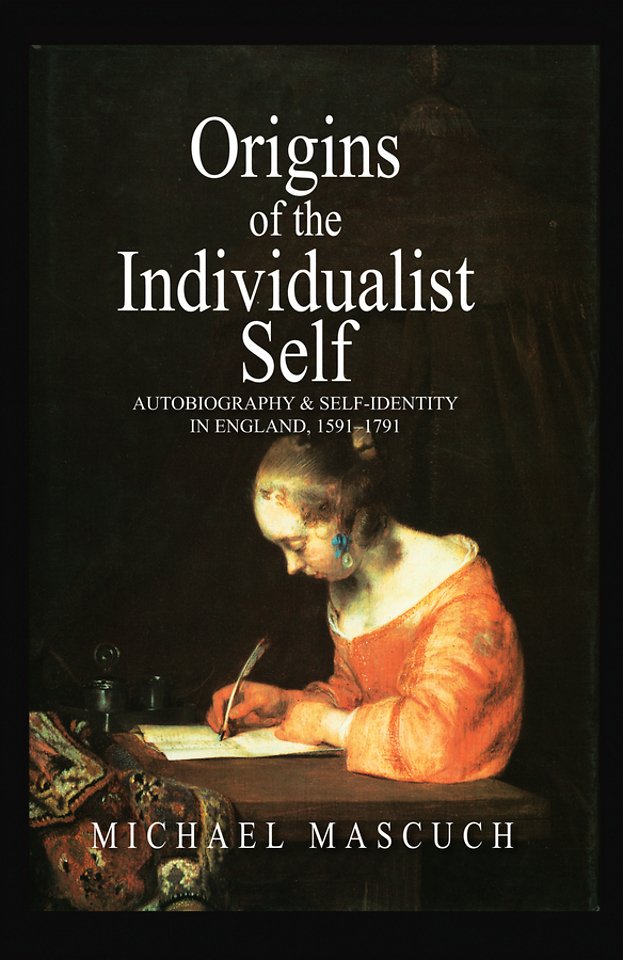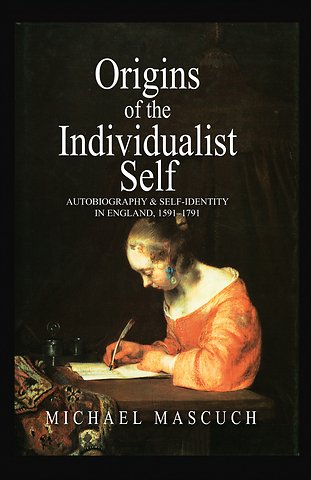Origins of the Individualist Self – Autobiography and Self–Identity in England, 1591 – 1791
Autobiography and Self–Identity in England, 1591 – 1791
Samenvatting
This book traces the emergence of the concept of self–identity in modern Western culture, as it was both reflected in and advanced by the development of autobiographical practice in early modern England. It offers a fresh and illuminating appraisal of the nature of autobiographical narrative in general and of the early modern forms of biography, diary and autobiography in particular. The result is a significant and original contribution to the history of individualism.
Michael Mascuch argues that the definitive characteristic of individualist self–identity is the personal capacity to produce a unified retrospective autobiographical narrative, and he stresses that this capacity was first demonstrated in England during the last decade of the eighteenth century. He examines the long–term process of innovation in written discourse leading up to this event, from the first use of blank almanacs and common place books by the pious in the late sixteenth century, through the popular criminal biographies of the late seventeenth century, to the printed–for–the–author scandalous memoirs of the mid–eighteenth century.
While offering a detailed account of a significant period in the rise of a modern literary genre, Origins of the Individualist Self also addresses topics which are central in the fields of literary and cultural theory and social and cultural history.
Specificaties
Inhoudsopgave
<p>Part I: The First English Individualist:.</p>
<p>1. Narrative Subjects: Individualism, Autobiography, Authority.</p>
<p>2. A Novel Self–Identity: The Performance of Individual Authority in James Lackington′s Memoirs.</p>
<p>Part II: Early Ancestors: The Sacred:.</p>
<p>3. Christian "Experience": or, The Discourse of Life and Death.</p>
<p>4. Writing on the Heart: Preserving Experience in First–Person Discourse.</p>
<p>5. A Press of Witnesses: The Impact of Print.</p>
<p>Part III: Immediate Precursors – the Profane:.</p>
<p>6. True Confessions: John Dunton and the Subject of Repentance.</p>
<p>7. The Trump of Fame: Self–Identified Heroes and Heroines.</p>
<p>Epilogue: ′The Author ... Our Hero′.</p>
<p>Notes.</p>
<p>References.</p>
<p>Index.</p>

